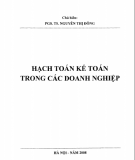Tài liệu Thư viện số
- Công nghệ thông tin (2019 )
- Điện tử viễn thông (1133 )
- Quản trị kinh doanh (1305 )
-
Kế toán
(1003 )
- Môi trường (968 )
- Du lịch (861 )
- Kiến trúc (424 )
- Xây dựng (1082 )
- Ngoại ngữ (302 )
- Y dược (1391 )
- Khoa học tự nhiên (874 )
- Khoa học xã hội (514 )
- Lý luận chính trị (573 )
- Sau đại học (243 )
- Tài liệu tham khảo khác (252 )
Danh mục TaiLieu.VN
- Mẫu Slide Powerpoint
- Luận Văn - Báo Cáo (344720)
- Kinh Doanh Marketing (65512)
- Kinh Tế - Quản Lý (48934)
- Tài Chính - Ngân Hàng (55898)
- Công Nghệ Thông Tin (142209)
- Tiếng Anh - Ngoại Ngữ (47066)
- Kỹ Thuật - Công Nghệ (134345)
- Khoa Học Tự Nhiên (107174)
- Khoa Học Xã Hội (82451)
- Văn Hoá - Nghệ Thuật (54408)
- Y Tế - Sức Khoẻ (173915)
- Nông - Lâm - Ngư (62504)
- Kỹ Năng Mềm (29016)
- Biểu Mẫu - Văn Bản (27610)
- Giải Trí - Thư Giãn (51994)
- Văn Bản Luật (198854)
- Tài Liệu Phổ Thông (402015)
- Trắc Nghiệm Online (213578)
- Trắc Nghiệm MBTI
- Trắc Nghiệm Holland
Tài liệu nổi bật
Kết quả 109-120 trong khoảng 1003
-
Lecture Fundamental accounting principles (21e) - Chapter 8: Cash and internal controls
Lecture Fundamental accounting principles (21e) - Chapter 8: Cash and internal controls. After completing this chapter you should be able to: Explain the importance of periodic reporting and the time period assumption, explain accrual accounting and how it improves financial statements, identify the types of adjustments and their purpose.
35 p dtu 23/09/2023 20 0
-
Lecture Fundamental accounting principles (21e) - Chapter 14: Long-term liabilities
Lecture Fundamental accounting principles (21e) - Chapter 14: Long-term liabilities. After completing this chapter you should be able to: Describe accounts receivable and how they occur and are recorded; describe a note receivable, the computation of its maturity date, and the recording of its existence; explain how receivables can be converted to cash before maturity.
45 p dtu 23/09/2023 17 0
-
Lecture Fundamental accounting principles (21e) - Chapter 20: Process cost accounting
Lecture Fundamental accounting principles (21e) - Chapter 20: Process cost accounting. After completing this chapter you should be able to: Explain process operations and the way they differ from job order operations, define and compute equivalent units and explain their use in process cost accounting, define and prepare a process cost summary and describe its purposes.
47 p dtu 23/09/2023 24 0
-
Lecture Fundamental accounting principles (21e) - Chapter 23: Flexible budgets and standard costs
Lecture Fundamental accounting principles (21e) - Chapter 23: Flexible budgets and standard costs. After completing this chapter you should be able to: Describe the importance and benefits of budgeting and the process of budget administration, describe a master budget and the process of preparing it, analyze expense planning using activity-based budgeting, prepare each component of a master budget and link each to the budgeting process.
48 p dtu 23/09/2023 22 0
-
Lecture Fundamental accounting principles (21e) - Chapter 24: Performance measurement and responsibility accounting. After completing this chapter you should be able to: Define standard costs and explain how standard cost information is useful for management by exception, describe variances and what they reveal about performance, analyze changes in sales from expected amounts, prepare a flexible budget and interpreta flexible budget...
39 p dtu 23/09/2023 25 0
-
Lecture Fundamental accounting principles (21e) - Chapter 25: Capital budgeting and managerial decisions. After completing this chapter you should be able to: Describe the importance of relevant costs for short-term decisions, evaluate short-term managerial decisions using relevant costs, analyze a capital investment project using break-even time, compute payback period and describe its use.
42 p dtu 23/09/2023 23 0
-
Lecture Fundamental accounting principles (21e) - Chapter 22: Master budgets and planning
Lecture Fundamental accounting principles (21e) - Chapter 22: Master budgets and planning. After completing this chapter you should be able to: Describe different types of cost behavior in relation to production and sales volume, describe several applications of cost volume-profit analysis, compute the contribution margin and describe what it reveals about a company's cost structure, analyze changes in sales using the degree of operating...
43 p dtu 23/09/2023 22 0
-
Lecture Fundamental accounting principles (21e) - Chapter 15: Investments and international operations. After completing this chapter you should be able to: Distinguish between debt and equity securities and between short-term and long-term investments, describe how to report equity securities with controlling influence, compute and analyze the components of return on total assets,...
45 p dtu 23/09/2023 23 0
-
Lecture Fundamental accounting principles (21e) - Chapter 16: Reporting the statement of cash flows
Lecture Fundamental accounting principles (21e) - Chapter 16: Reporting the statement of cash flows. After completing this chapter you should be able to: Distinguish between operating, investing, and financing activities, and describe how noncash investing and financing activities are disclosed; analyze the statement of cash flows and apply the cash flow on total assets ratio; prepare a statement of cash flows; compute cash flows from...
41 p dtu 23/09/2023 25 0
-
Lecture Fundamental accounting principles (21e) - Chapter 17: Analysis of financial statements
Lecture Fundamental accounting principles (21e) - Chapter 17: Analysis of financial statements. After completing this chapter you should be able to: Explain the purpose and identify the building blocks of analysis, describe standards for comparisons in analysis, summarize and report results of analysis, explain and apply methods of horizontal analysis, describe and apply methods of vertical analysis, define and apply ratio analysis.
44 p dtu 23/09/2023 28 0
-
Lecture Fundamental accounting principles (21e) - Chapter 18: Managerial accounting concepts and principles. After completing this chapter you should be able to: Explain the purpose and nature of, and the role of ethics in, managerial accounting, describe accounting concepts useful in classifying costs, define product and period costs and explain how they impact financial statements, explain how balance sheets and income statements for...
39 p dtu 23/09/2023 24 0
-
Lecture Fundamental accounting principles (21e) - Chapter 19: Job order cost accounting
Lecture Fundamental accounting principles (21e) - Chapter 19: Job order cost accounting. After completing this chapter you should be able to: Describe important features of job order production, explain job cost sheets and how they are used in job order cost accounting, apply job order costing in pricing services, describe and record the flow of materials costs in job order cost accounting, describe and record the flow of labor costs in job...
42 p dtu 23/09/2023 25 0

























